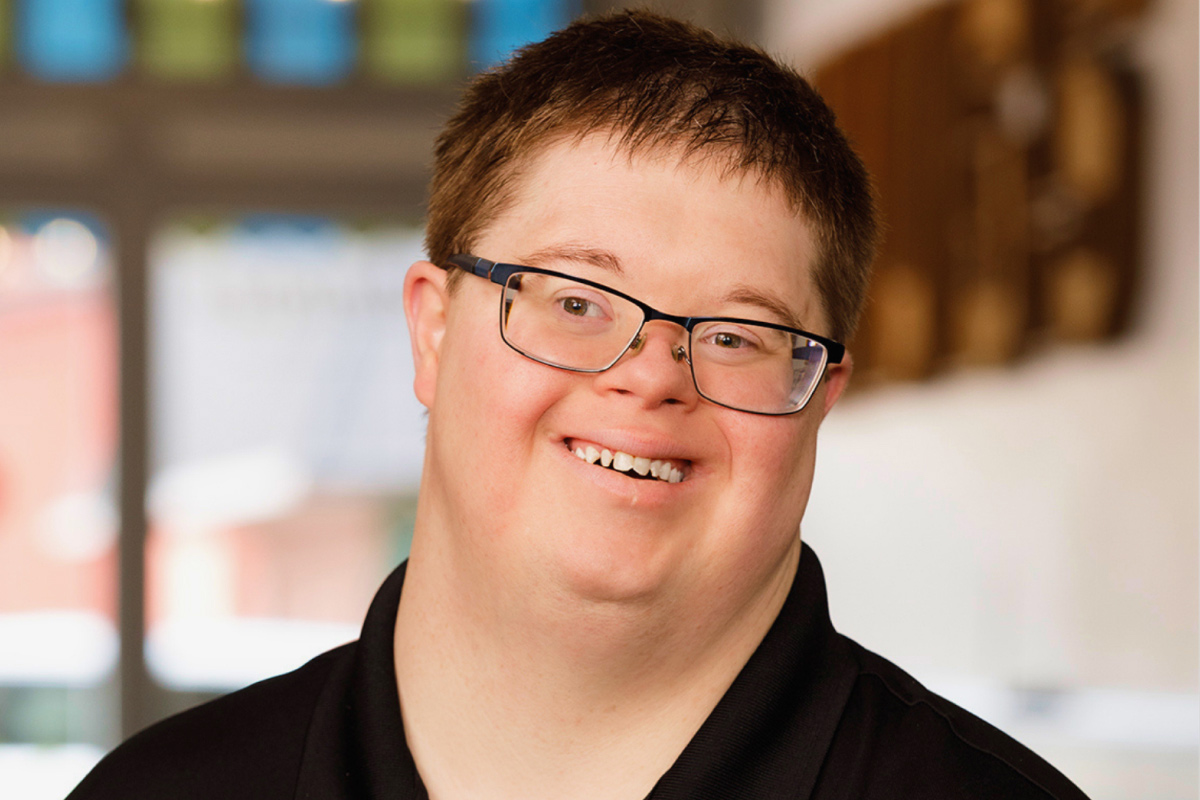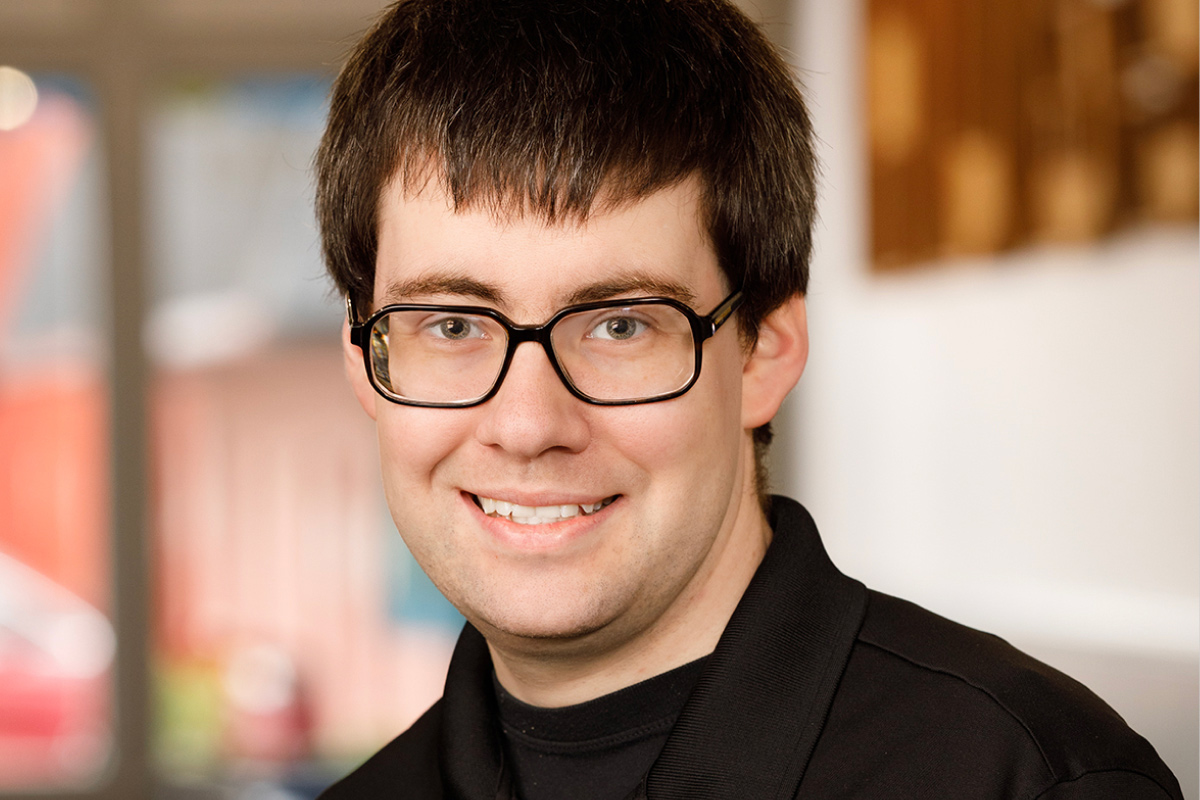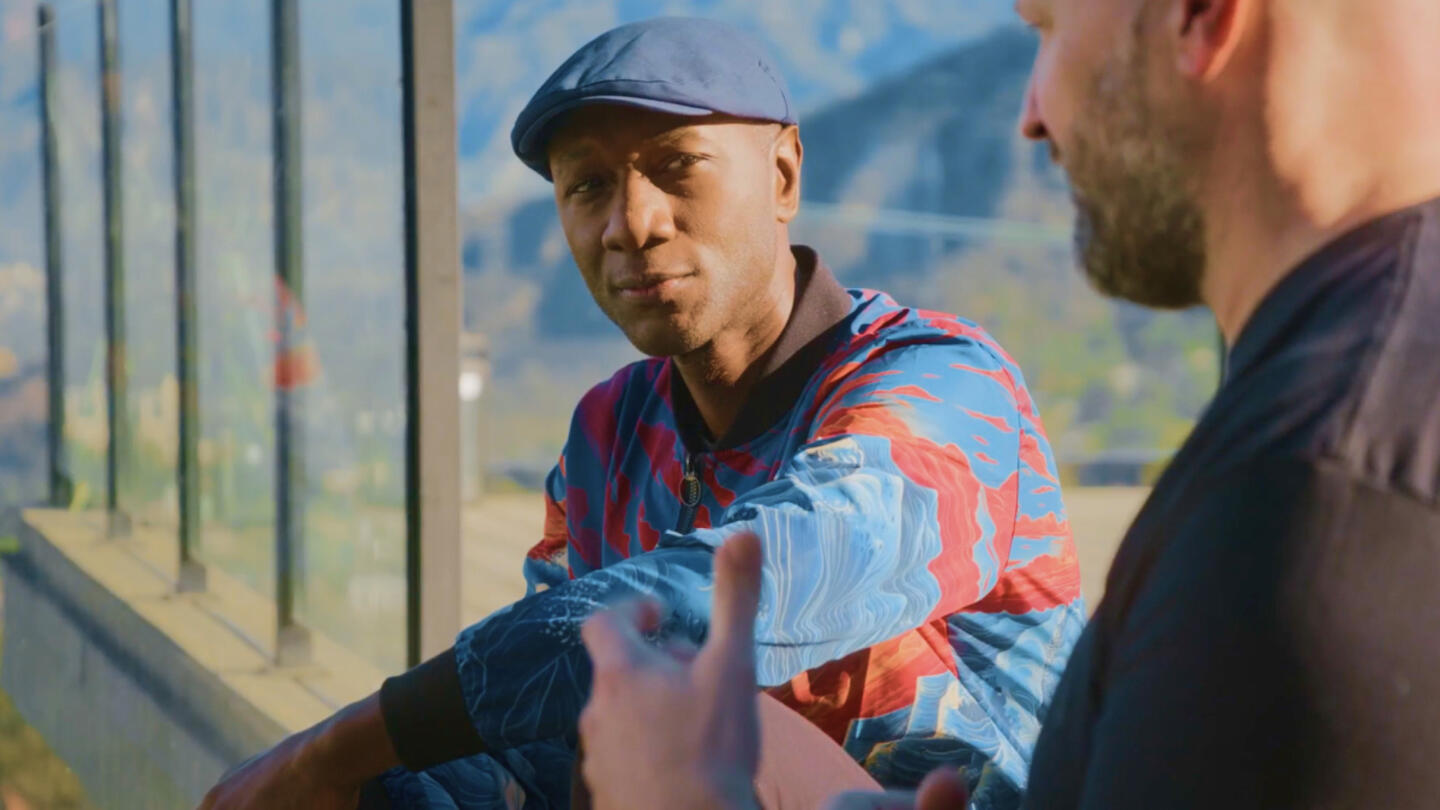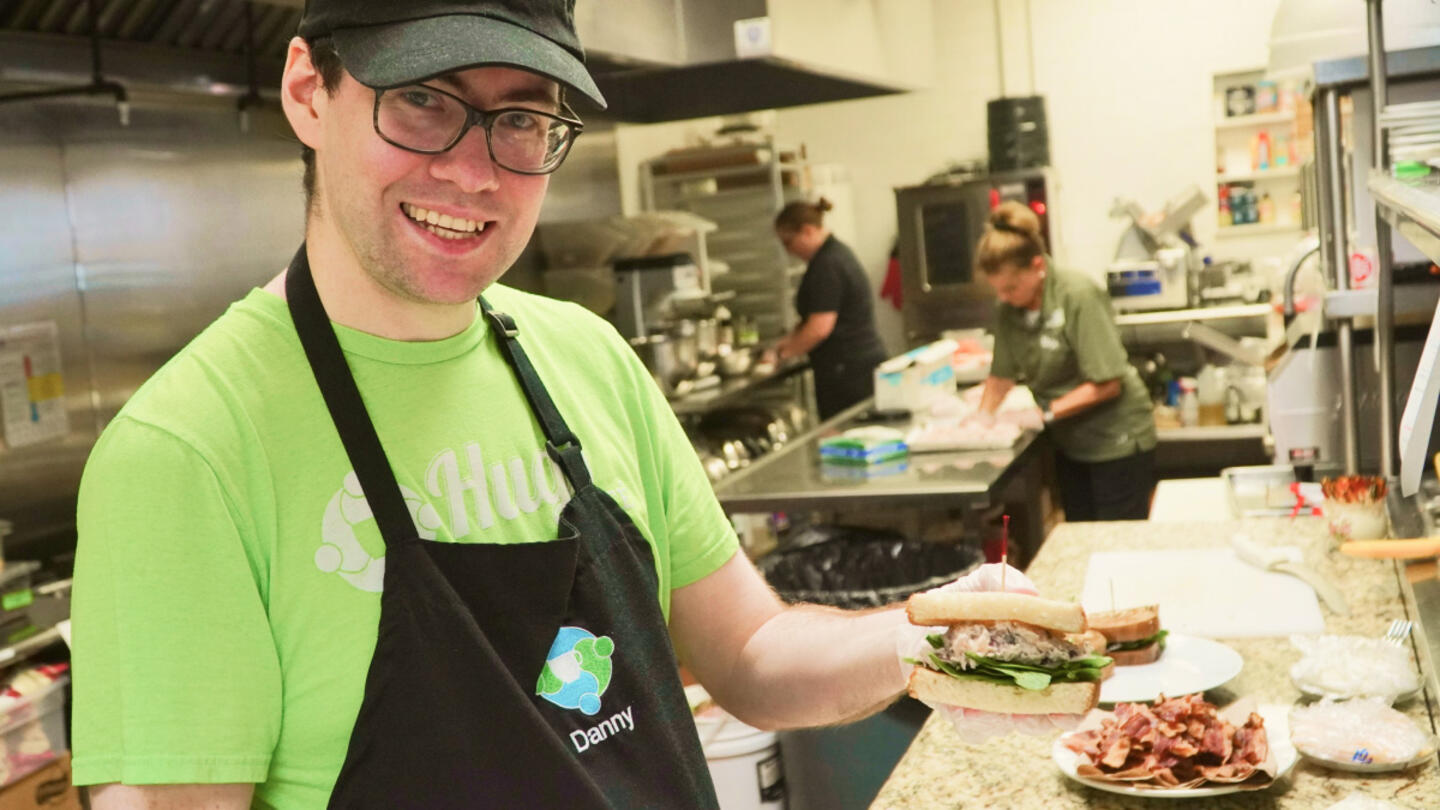At Hugs Cafe, the day begins like it does in many restaurants — with a team huddle. Just before opening, a circle forms near the kitchen as 10-15 employees gather to hear the plan for the day.
That routine may look typical, but Hugs is anything but. The food is excellent, the atmosphere is warm and welcoming, and the cafe, nestled in the heart of downtown McKinney, Texas, attracts a steady mix of local regulars and curious newcomers. But what truly sets Hugs apart isn’t just the menu or the charm — it’s the people.
In that circle, you’ll notice Tamika Wilson and Danny Sigler. Both have autism, and their strengths shine through in different ways.
Tamika, the cafe’s kitchen manager, is calm and steady. She’s been with Hugs from the very beginning and knows every task inside and out. She rarely starts a conversation, but she’ll answer if you speak to her.
Danny is a burst of energy. He loves working the register and serving guests, and if you ask, he’ll happily tell you about his favorite movie — “Inside Out 2” — and how he likes to act it out in his head.
You’ll likely see Jerry Winters and Marty Cole in the circle — two of the cafe’s best huggers. Marty, who suffered a brain injury that affects her memory, greets every customer with wide-eyed joy, as if she’s seeing an old friend for the first time in years. Jerry, who has Down syndrome, loves to chat, though you may need to listen closely to understand him. When he brings you your lunch, it will be exactly right. And if you’re lucky, you’ll get one of his famous hugs: the kind that lifts your spirits and stays with you long after you’ve left the cafe.
The circle always ends with a joyful shout. Everyone chants the Hugs cheer in unison — “Hugs! Hugs! Hugs! Woo-hoo!”
It’s Jerry’s favorite part.
Of its 75 employees, 53 have intellectual and developmental disabilities. “We didn’t start with, ‘We’re going to make this product for the public,’” explained Lauren Smith, the executive director. “We said, ‘We’re going to create jobs for these people,’ and then we carved out jobs to meet people’s abilities and interests.”
In the 10 years since Hugs Cafe opened, this social enterprise has transformed mindsets. Challenges once seen as hardships are now embraced. And for the team members at Hugs, that shift is personal. They see themselves as valued members of their community, finding purpose and pride in the work they do.
When asked whether he is an important part of the Hugs staff, Danny didn’t hesitate: “I am,” he said. “In fact, I am now the first one to have a new position, which is the ambassador speaker for Hugs Cafe.”
What if more workplaces were as people-focused?
She still received a paycheck, but the work was empty
When Hugs Cafe’s founder Ruth Thompson talks with other restaurant owners about her team, she often hears a familiar response: “We have someone with disabilities who rolls our silverware.”
That’s not how it works at Hugs.
“Our teammates do everything that we do in our restaurant,” said Thompson. “They make everything that we serve from scratch. They do it all. We have some who have management positions now. What I’m trying to do is combat that mindset of, ‘Well, they can roll silverware.’ No, they can do so much more.”
Not all jobs for people with disabilities are created equal. Kathy Lamprecht, a Hugs employee who has cerebral palsy, once worked at a winery, where her job was to place labels on wine bottles. But when it became clear she couldn’t meet the company’s packaging standards, they told her to simply sit on a stool and watch.
She still received a paycheck, but the work was empty.
When she started working at Hugs Cafe, Kathy named herself the “bread queen.” She toasts bread for every sandwich served, tells jokes to both customers and employees, and refuses to sit on a stool.
“Kathy just loves being a part of the Hugs community,” said Smith. “And for her to have this opportunity where she sees customers’ smiling faces has been exceptional for her self-esteem. It’s a story of what’s possible — that you don’t have to just accept the job you’re given. You don’t have to accept the one slot that they’re hiring for the disabled person.”
Hugs has become a true community — a place where team members feel they belong. For many adults with disabilities, social opportunities all but disappear after they age out of the school system. Hugs restores those opportunities for them.
“I’ve come to see each and every one of the staff members and workers as my friends,” said Danny. “Sometimes it becomes complicated, but we find a way to make it work without any problems.”

Jerry, whose mother often interprets for him in other settings, has coworkers who’ve known him long enough to keep up with his speedy chatter. “Jerry has made some really good friends,” said Sherri Winters, Jerry’s mother. “He’s a part of a group, which we all need. We all need to belong and have friends. We all need peers who are like us.”
One of Jerry’s friends is a coworker named Travis who also has Down syndrome. Winters has never described her son’s Down syndrome as something that sets him apart from others. So when Jerry came home from work one day and told his mom, “Travis is just like me,” it was a special moment for her.
“That meant so much to me that he recognized that Travis was like him,” she said.
Sign up for the Strong & Safe Communities newsletter for stories, ideas, and advice from changemakers working with their neighbors to address the biggest problems we face.
‘It isn’t as hard as you might think’
A common misconception about working with people with intellectual disabilities is that you need specialized training or that more supervision may be required. But both Thompson and Smith would argue the opposite.
Many of the staff members frequently express how much they appreciate their jobs, and it shows in their performance. “They want to be here,” said Thompson. “We have no turnover, which is unheard of in the restaurant business.”
Smith emphasized that her employees simply want respect and dignity. “A lot of people ask me what special education training I have, and I tell them it is absolutely zero,” said Smith. “I just spend time with people as though they are my peers. We need to break the stigma that you need something special to be able to talk to a human who just wants to be treated like a human.”
When Hugs was first getting up and running, neurotypical volunteers helped guide the employees as they adjusted to their responsibilities. But the progress since then has been remarkable.
“When we first started, our teammates needed a tremendous amount of support,” said Lee Ann Parsons, a longtime volunteer at Hugs. “It’s been amazing to see the growth that has happened.”
Volunteers primarily work in the background now, ready to step in only if a teammate gets stuck.
The leadership team doesn’t make assumptions about what their employees can or can’t do. Instead, they listen — taking cues from each worker about their interests and encouraging them to grow. Intellectual disabilities aren’t seen as limitations here. They’re embraced as “special abilities.”
Take Danny, for example. When he first joined Hugs, he was on the quieter side and gravitated toward the dish pit — a role that let him stay behind the scenes. But over time, he grew curious about serving. So he took the initiative and Googled it.
“He came back the next day with a few lines he’d memorized from Google about how to be a server,” said Smith. “We gave him a few more tips and let him give it a try.”
Now, nearly 10 years later, Danny has mastered several roles in both the kitchen and dining room.
“I guess you could say I’m a multitasker,” he said. “My main positions are being on the register, working in the kitchen making sandwiches, weighing and wrapping meat, or rolling up cookie dough to put in the freezer. I recently started doing expo and serving, which isn’t as hard as you might think.”
Jerry’s growth has been just as impressive. He started as a dishwasher, but his love for people led Hugs’ leadership to offer him training as a server. Now, he’s not only excellent at his job — he knows it. His mom occasionally volunteers when things get busy, but Jerry doesn’t like her watching over his shoulder.
“He will tell me, ‘Back off, I got this,’” said his mom. “And he does. He can take a cart of food, and it may have six different plates on it. He will hand them to the right guests. He’s super efficient at his job, and it’s just wonderful.”
The cafe’s ripple effect is growing
When Thompson first pitched the idea of a restaurant staffed entirely by people with disabilities, many couldn’t envision how it would work, and some doubted it was even possible.
That perception changed. Today, people in the community celebrate it. “This place was started for the special needs community and for our teammates,” said Parsons. “That was the goal, but the ripple effect of this little cafe in McKinney, Texas, is very wide, very powerful.”
The moment you step into Hugs, the atmosphere is palpable with joy and purpose.
“My husband tells people, ‘Go to Hugs on your worst day because it won’t stay your worst day,’” said Thompson.
For Smith, the first time she walked into Hugs, she was expecting a typical cafe experience. Instead, she was met with something truly life-changing.
“It’s not like you see one person with Down syndrome serve your meal and then that’s it,” she said. “You start to notice that everyone there is very unique in this really cool, individual, confident way. I was not expecting that at all. It was unnerving in the most purely positive way that you could imagine.”
Smith and Thompson are dedicated to expanding the Hugs experience, bringing it to more communities, and spreading its impact.

Danny is helping them do it. Being a Hugs ambassador is a role he loves. “I go to different events where I get on stage and speak to lots of people about my journey at Hugs Cafe and what it means to me,” he said. “I don’t even need note cards to know what to say. I’m told what I need to say, and I then say it with my own twist from the top of my head. And I have received standing ovations.”
Later this year, a second Hugs Cafe location will open in Dallas. The organization now offers Hugs Training Academy, which helps individuals with disabilities gain the skills needed for meaningful employment. And the nonprofit is expanding nationally, offering both its training program and franchise opportunities for social entrepreneurs interested in bringing the Hugs Cafe model to their own communities.
And Jerry? He’s doing his part, too. When he meets someone new, like on family trips out of state, he invites them to visit Hugs. “That’s how proud he is of working there,” said his mom. “He wants to tell everyone about Hugs and invite them for lunch.”
Hugs Cafe Inc. is supported by Stand Together Foundation, which empowers individuals to reach their full potential through community-driven change.
Learn more about Stand Together’s efforts to build strong and safe communities and explore ways you can partner with us.

At this ‘resort,’ children with intellectual disabilities are seen as gifts to be celebrated and loved.

Veterans experience loss when leaving service. Could this be key to understanding their mental health?

The Grammy-nominated artist is highlighting the stories we don’t get to hear every day.

With his latest project, Blacc isn’t just amplifying stories — he’s stepping into them
